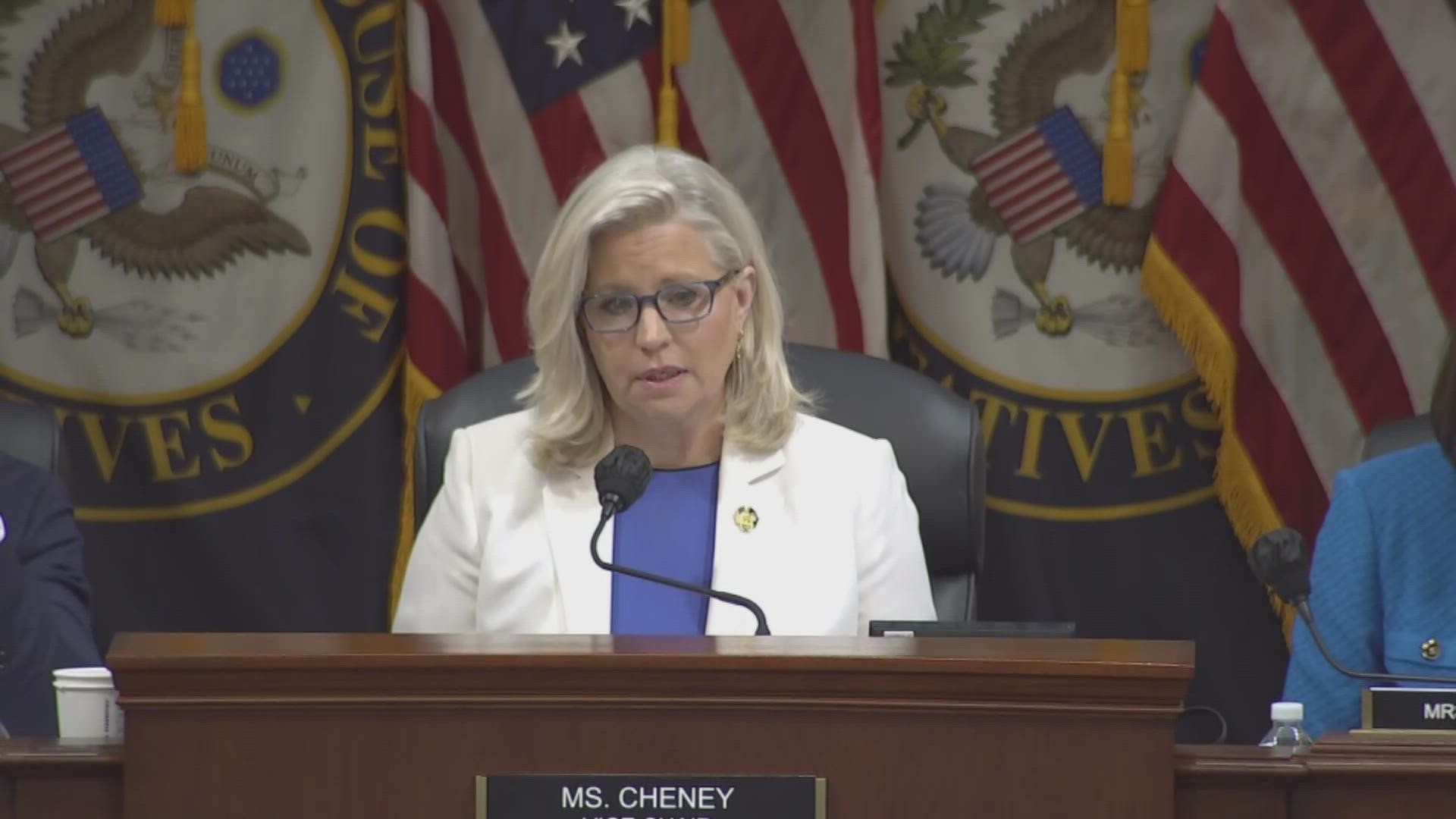WASHINGTON — Sgt. Aquilino Gonell, a U.S. Army veteran and Capitol Police officer facing medical retirement due to serious injuries sustained during the Capitol riot, testified for the first time Wednesday at the trial of a Jan. 6 defendant.
Gonell was one of four officers who spoke about the assault on the Capitol last year during the first hearing of the January 6th Committee. He told the committee about his horror that day as he watched American citizens attacking uniformed police officers, and about the lingering injuries he’d sustained. Gonell also provided victim impact statements during the sentencing hearings of two Jan. 6 defendants, including D.C. resident Mark Ponder, who pleaded guilty to attacking Gonell and other officers with a metal pole on Jan. 6 and was sentenced to five years in prison last month.
On Tuesday, another defendant, Kyle Fitzsimons of Maine, began a bench trial before U.S. District Judge Rudolph Contreras. Fitzsimons was indicted on multiple felony counts stemming from the Capitol riot, including counts alleging he assaulted and injured three officers: DC Police Sgt. Phuson Nguyen, DC Police Officer Sarah Beaver and Gonell.
Nguyen testified Tuesday, saying surveillance and bodycam video shot inside the Lower West Terrace Tunnel on Jan. 6 shows Fitzsimons reaching under his face shield and dislodging his gas mask – which exposed him to other rioters’ pepper spray. On Wednesday morning, Beaver testified that she was struck in the head by a stick or pole thrown by Fitzsimons.
Fitzsimons’ attorney, federal public defender Natasha Taylor-Smith, pressed both officers on the facts of their testimony, but it was Gonell who she spent most of the afternoon cross-examining. Of the three, Gonell received by far the most serious injuries – but attributing those injuries to Fitzsimons also relied the most on his testimony, as body camera footage showing alleged contact between the two was partially obscured by the chaos inside the tunnel.
Although Fitzsimons opted not to have his case heard by a jury, Gonell also presented as a compelling witness for prosecutors. On direct examination, he testified about moving to the U.S. from the Dominican Republic and struggling to learn English. After high school, he joined the U.S. Army to repay the debt he said he felt he owed the country that “adopted” him and his family, and saw combat while serving a deployment in Iraq.T He continued that service after the Army by joining the U.S. Capitol Police Department, where he had served for 16 years, rising to the rank of sergeant, prior to Jan. 6.
On the day of the riot, Gonell was assigned to the department’s civil disturbance unit. He testified Wednesday about being robbed of his baton and repeatedly assaulted for hours while he and other officers attempted to hold the outer perimeter and then the Lower West Terrace Tunnel. He sustained injuries to a foot and his left shoulder that required surgery and physical therapy and which, ultimately, ended his career as a police officer. It was the shoulder injury which Gonell attributed to Fitzsimons, testifying he felt a “shooting pain” when Fitzsimons allegedly grabbed his shield and tried to drag him to the ground and into the crowd.
“It was one of the most horrific moments of the entire event,” Gonell said Wednesday.
It’s the shoulder injury, Gonell said, which has most contributed to his forced medical retirement. He said in a situation where he needed to take a combative subject into custody, he would be more of a liability than a help to other officers. And, he said, it’s changed his life outside of the police force as well.
“I used to coach my son,” he said. “I used to play basketball three times a week. I can’t do any of that anymore.”
During cross-examination, Taylor-Smith worked to cast him in a different light than prosecutors: As someone who sought to capitalize on the events of Jan. 6 for personal and ideological gain. Gonell has done interviews with numerous outlets since the Capitol riot – including with WUSA9 – and, according to his testimony in court, has been compensated for some of them (WUSA9 does not provide compensation for interviews). Gonell is also working on a book about his experiences on Jan. 6.
Taylor-Smith questioned Gonell about his social media presence, where he has continued to call for accountability for former President Donald Trump and others he holds responsible for the riot, and statements he made in an interview saying anyone who breached the Capitol on Jan. 6 participated in a “coup attempt.” She suggested he went to work on Jan. 6 already preparing for an attack from Trump supporters.
“You believed it was your job to defend the Capitol that day,” Taylor-Smith said.
“I didn’t believe it,” Gonell replied. “It was my job. And I did it.”
Taylor-Smith also suggested the strike from Ponder that cracked Gonell’s riot shield could have caused the shoulder injury – something he denied in his victim impact statement – and that he simply didn’t notice it until later due to adrenaline. Gonell denied that as well, saying he’d fought to defend the Lower West Terrace Tunnel for three hours without issues until Fitzsimons allegedly grabbed his shield.
Though Gonell was on the witness stand for more than three-and-a-half hours on Wednesday, Taylor-Smith’s cross-examination had only just reached the alleged actions of Fitzsimons near the end of the day. Cross-examination was set to resume Thursday morning at 10 a.m.
Prosecutors were expected to call the FBI case agent assigned to the investigation in Fitzsimons as their final witness on Thursday. Taylor-Smith said she did not expect to present any testimony on Fitzsimons’ behalf.
We're tracking all of the arrests, charges and investigations into the January 6 assault on the Capitol. Sign up for our Capitol Breach Newsletter here so that you never miss an update.

